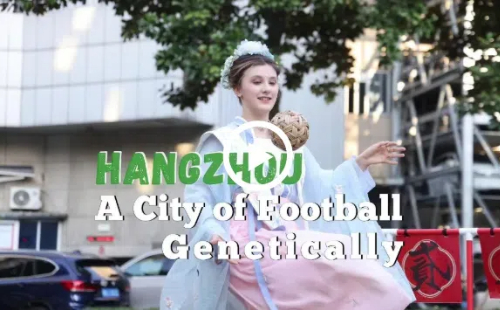Cultural Splendor of the Song Dynasty (VIII)
Social customs and mores played an important role in China's feudal system. This is what the ancients meant when they said, "customs and mores are the foundation of a society throughout the ages." The rulers of the Song dynasty (960-1279) were well aware of their importance, and generally believed that the rise and fall of a country were closely linked with social customs and mores. As the Song historian Sima Guang (1019-1086) once argued, "The crux of the governance of a country is in li (rituals), while the good and evil of social customs and mores are tied to traditional practices." Su Shi (1037-1101), the renowned Song poet and statesman also contended, "The reason why a country prospers or collapses lies in its morality or lack thereof, not in its power or lack thereof; The reason why a dynasty lasts or not lies in the strengths of its customs or lack thereof, not in its wealth or lack thereof." It is no coincidence that rulers historically spent a lot of effort on guiding and educating the public through influencing and changing customs so as to stay in power for generations upon generations.
Social customs and mores, in the process of being passed down, tend to evolve with the input of new social, political, economic and military factors, especially during times of rapid economic transformation such as in the Song dynasty, and they were symbolized by the elevated status of the common people and the merchant class, and the breakdown of barriers between the gentry and the commoners.
With the lifting of the curfew, eating and dining habits were among the first changes to take place. Having three meals a day was the new norm, replacing the old one of having just two a day. The variety of food and drinks was more enriched as it included staples and various dishes, as well as tea, wine, soup and fruit. Food flavors also took on a more distinct regional characteristic. The southerners, who had rice as their staple food, preferred their dishes to be saltier, while the northerners, who had wheat and poultry meat as staples, preferred sweetness. In the central region and urban areas, people preferred lighter flavors. In terms of greeting the guests, there appeared to be no regional variation: everywhere, guests were welcomed with tea and fruit. Meanwhile, the Song people were more particular about food hygiene, food waste and living a healthy life.
The people were also particularly concerned about their clothes. In a class society, clothes were more than just a means to cover the body, but also a way to look good and, more significantly, show off one's position in the societal hierarchy. It is no wonder that throughout Chinese history, great importance had been attached to dressing, which was even codified in rituals and laws. Therefore, clothing styles generally remained stable over time. However, in the Song dynasty, clothing fashion shifted every few years and pecking orders reflected through attires quickly broke down, as the Song people increasingly expressed their own interests, wealth, status and values through all kinds of clothes.
The Song period also witnessed a transformation in housing, which drastically differed from the Tang dynasty (618-907). Scholar-officials lived in the now popular garden residences, and whose architectural style went from being grand and majestic to being delicate and exquisite. Wealthy families were fond of not only building rockeries, but also planting a variety of exotic flowers. In the process of building houses, a whole set of customs were established. Some of these customs were related to the choice of a house's location and orientation, offering sacrifices to ancestors and the God of Land when breaking ground, and hosting banquets when the house was built. In addition, the houses of scholar-officials usually had a separate study room for reading and learning, and Taoist, Buddhist and ancestral shrines were also a regular feature. Most notable of all, perhaps, was the popularization of chairs. Until then, Chinese people had generally sat on mats or low platforms with low tables before gradually moving on to high tables with chairs, laying a solid foundation for the development of classical Chinese furniture.
Changes also occurred in the way Song people traveled. Sedan chairs, a means of land transport, were at first a privilege reserved for the royal family, but the right to ride sedan chairs was later granted to ailment-afflicted senior and elderly officials, who were previously only allowed to ride horses. At the end of the Northern Song (960-1127), sedan chairs had become so popular that not only officials and rich people used them, but also commoners and even prostitutes. Sedan-chair-renting services even appeared in the capital. In the Southern Song (1127-1279), riding sedan chairs became even more prevalent, and it was said that "nobody goes out without a sedan chair".
When it came to wedding customs, one significant reform in the Song was that the six rites which had been traditionally followed were streamlined into three, namely formal proposal, sending of betrothal gifts between the groom's and the bride's families, and the wedding ceremony. In fact, there had been no celebration and no merrymaking in weddings until the Song, when the folkways took a new turn: on the wedding day, the bride would wear a decorated dress and ride in an ornamental litter, guided by upbeat music; ceremonies such as the "three kowtows" (i.e., kowtowing to heaven and earth, kowtowing to the parents and kowtowing to each other) and drinking cross-cupped wine were adopted by later generations.
Similar to weddings, funerals have been endowed with as much, if not more, cultural and social significance. During the Song, a sizable number of funeral rites were observed. People were usually expected to attend in person the funerals of their kith and kin; even if for some reason they could not attend, they should send a letter and gifts as tribute. When scholar-officials paid their tribute, they often brought with them elegiac couplets, which are now generally believed to have originated from this period. Another tradition which arose at this time was burning paper articles for the dead, including joss paper, paper clothes and paper gold, and silver ingots. Joss paper, more commonly known as "hell money", is still widely burnt today to commemorate deceased family members, relatives and friends.
Moreover, a range of traditional festivals were celebrated in the Song, including the Spring Festival, Lantern Festival, Qingming Festival, Dragon Boat Festival, and Mid-Autumn Festival, among others, as well as a host of unique religious and political festivals, which, apart from their cultural importance, were also celebrated for leisure, and helped stimulate economic development and spur domestic consumption, as they were closely tied to commercial activities. Lesser known was the Song people's concern for the environment. They advocated for the protection of forests, pastures and animals, strictly forbade rampant logging and called for the rational use of natural resources.
In light of the important role of those social customs and mores, the Song rulers and officials tried a few approaches to popularize "good" ones and curb the spread of "bad" ones. One way was to lead by example: the emperor, the imperial court and the capital city would lead the way in observing the customs that were deemed desirable, and shrines and temples would be built for the paragons of virtue, while those who followed harmful practices, such as witchcraft, would be punished. Another way was to codify the customs through Confucian rituals, imperial edicts and official laws. Finally, through the school education system, good social values were inculcated into the general public.





 play
play